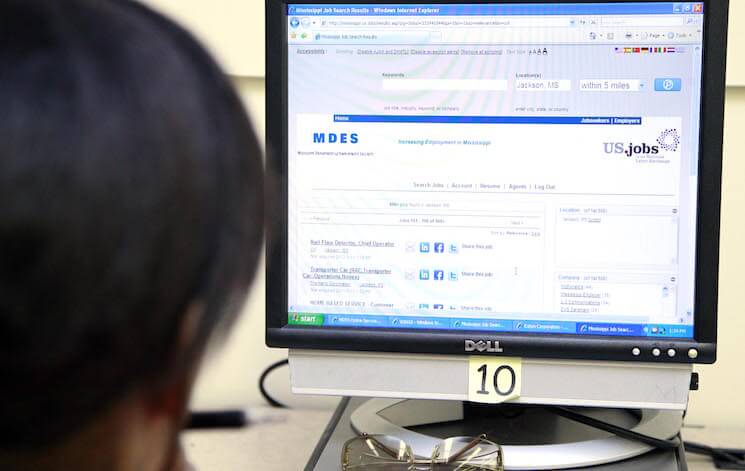Why do long-term unemployed Americans face difficulties finding jobs?

Why do Americans who’ve been out of work for a long time have such a hard time finding jobs? The answer is very important because long-term unemployment (longer than 26 weeks) as a share of the labor force and as a share of total unemployment has been on an upward trend over the past decade or so. Levels spiked during the Great Recession and are now on the decline, but they are still quite elevated. Why care about long-term unemployment? The rate at which these workers get hired is much lower than the rates for workers who’ve been unemployed for shorter periods of time. Do long-term unemployed Americans face more difficulties getting hired because they aren’t very productive or because of some other potential flaw? Or is it because of the experience of being unemployed itself?
A new National Bureau of Economic Research working paper by economists Katharine Abraham and John Haltiwanger of the University of Maryland and Kristin Sandusky and James Spletzer of the U.S. Census Bureau seeks to determine what’s behind the struggles of long-term unemployed workers. This is not as easy as it might seem at first glance. The reason: Researchers can look at the rate at which workers get hired from data sets such as the Current Population Survey, but it’s impossible to tell whether the thing holding back these workers is something that was present before unemployment or due to unemployment itself.
The coauthors match two datasets together to help get at this question. They take data from the Current Population Survey and match it with data from the Longitudinal Employer-Household Dynamics program, an administrative dataset that has information on workers’ employment histories. The information from the LEHD lets the four economists see the trajectory of workers’ careers before they lose their jobs. Such knowledge is important when evaluating the causes of the hiring struggles for the long-term unemployed. An analysis can look at the difference between two workers with very similar work histories but with different amounts of time in unemployment.
What the authors find is that after accounting for differences in education, age, and job experience, there is still a significant difference in hiring for long-term unemployed workers compared to those out of work for shorter periods of time. This points toward explanations that have to do with a long spell of unemployment itself causing harm rather than something being wrong with the workers that is hindering hiring.
The four economists note there are a number of potential explanations that center on unemployment itself being the problem for long-term unemployed Americans. Maybe a long period of unemployment harms workers’ skills and makes them less employable. Perhaps after a long time of having no luck of finding jobs, these workers might not search as hard. Or employers simply could be discriminating against them. Figuring out which among these explanations (or maybe others) are responsible for the hiring difficulties facing the long-term unemployed is an important next step for research as the current business cycle enters its seventh year since the end of the Great Recession.

